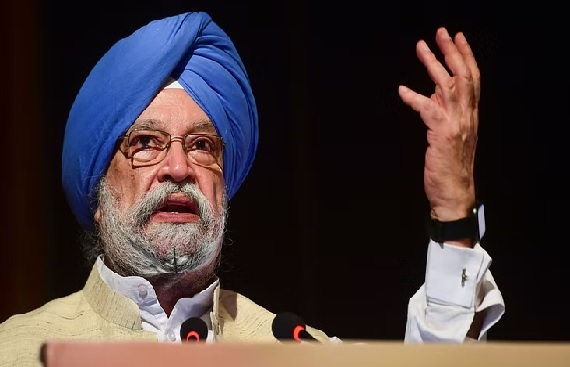Global Biofuel Alliance intends to change farmers from 'Annadata' to 'Urjadata'
By
siliconindia | Wednesday, 13 September 2023, 01:54 Hrs

The goal of the Global Biofuel Alliance, established by Prime Minister Narendra Modi, is to convert "Annadata," or farmers, into "Urjadata," or Hardeep Singh Puri, Union Minister of Petroleum and Natural Gas. He said that India's strategy for sustainable energy is centered on this "transformative" function. PM Modi announced the Alliance on September 9 while India was holding the G20 Presidency, garnering support from 19 nations and international organizations. A total of 19 countries and 12 international organizations have so far agreed to join the alliance, including both G20 members and non-member countries. India, Brazil, and the US are the founding members of the alliance. Puri said under India's presidency, the primacy of G20 as an economic forum has been established, and the country has succeeded in navigating through issues to produce a consensus document.
The minister said that India had saved around Rs 73,000 crore on its import bill in the last nine years because of biofuel blending, and a large part of that benefit has been transferred to the farmers. Addressing concerns about the impact of biofuels on food security, Puri dismissed the notion, emphasizing that biofuels could enhance agricultural production. He cited India's substantial savings on oil import bill due to biofuel blending. "The whole debate of food security is absurd. By going through the biofuel route, you are enhancing your agriculture production," Puri asserted. He also said that a major implication of the launch of the biofuel alliance would be sustainable fuel used in aircraft. “If we do 1 percent biofuel blending as a norm for sustainable aviation fuel, we benefit 5 lakh farmers. And, if we raise the biofuel blending norm to 5 percent, we benefit another 70 lakh farmers,” the minister said.
Puri said the alliance represented a major step forward, and its impact was already being felt globally. He cited projections indicating that the biofuels market could be worth trillions of dollars if managed effectively. The initiative's broad support from industry associations and international entities signaled its immense potential. Additionally, Puri discussed the Economic Corridor linking India, the Middle East, and Europe, supported by Italy, France, Germany, and the United States. He clarified that this project was not intended as a countermeasure but rather a visionary plan for the future. The corridor aimed to enhance connectivity, including shipping lines, ports, railways, and more, facilitating the seamless movement of goods and people between Asia and Europe.
Puri also highlighted the progress in ethanol blending, with plans to achieve a 20% target by 2025, ahead of the 2030 timeline. He also said that the plan to set up Compressed Biogas (CBG) plants under the SATAT scheme had a slow start, but its momentum is now building. "The CBG program is gaining traction. State governments have identified land, and companies are ready to invest in CBG plants," Puri stated. Regarding India's oil imports and the impact of the Ukraine war, Puri explained that India had diversified its sources of supply, including importing energy from a broader range of countries, such as the United States and Russia. "We will buy from wherever we have to. A democratically elected government owes a moral responsibility to its citizens for availability, affordability, and sustainability," he said.
